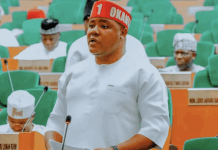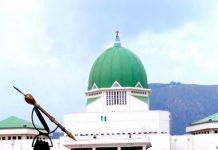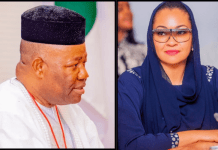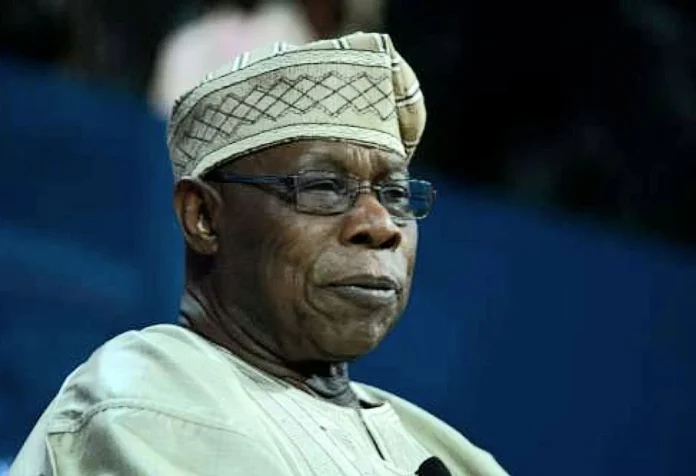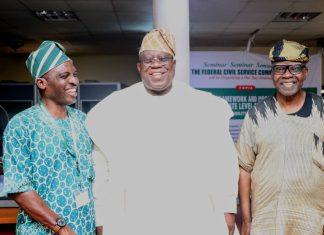Olusegun Obasanjo, the former president of Nigeria, has been criticized by a coalition of civil society organizations, including The Transparency Network, Public Interest Initiative, Nigerian Justice League Initiative, and Foundation for True Democratic Governance and Freedom, for his recent demand that Prof. Mahmood Yakubu, the chairman of the Independent National Electoral Commission (INEC), and other commission officials be fired.
Dr. Danladi Ceceko, the coalition’s spokesperson, said in a statement that Obasanjo’s own record of overseeing some of Nigeria’s most contentious elections means he has no moral authority to criticize Yakubu.
As part of the necessary electoral reforms in Nigeria, former President Obasanjo called for the removal of INEC Chairman Mahmood Yakubu and all other officials, according to a statement he made during a lecture at Yale University’s Chinua Achebe Leadership Forum, Ceceko said.
Ceceko went on, “Obasanjo seems to think that Nigerians have forgotten the elections in 2023 and 2007, when his party’s nominees were proclaimed the winners in spite of claims that the elections were not held correctly. Should we tell the previous president that the person he fraudulently and controversially put in charge of the country in 2007 acknowledged corrupt practices and irregularities in the election at his inauguration?
“Is there any indictment more important than this?” he said further.
Because of his role in coup d’etats and electoral rigging during his presidency, the coalition harshly denounced former President Olusegun Obasanjo, calling him the “ultimate state captor.” They cited the elections in 2003 and 2007 as instances of his administration’s dubious electoral integrity.
The coalition referred to Obasanjo’s notorious claim that “even Jesus Christ can’t conduct a free and fair election in Nigeria,” calling him the “Father of do-or-die politics” and highlighting the absurdity of his recent remarks.
Read Also:Zakari Family Mourns Double Tragedy: Ex-NIA DG’s Son Dies Hours After Him
Goodluck Jonathan, Ibrahim Babangida, Abdulsalami Abubakar, Muhammadu Buhari, and Shehu Shagari were among the leaders that the alliance accused Obasanjo of sabotaging. They pointed out his open rupture of his membership card, his public repudiation of the party that helped him gain power in 1999, and his intolerance for criticism. They recalled his inability to look into the killings of political rivals, including Bola Ige, Marshall Harry, and Funso Williams.
“Obasanjo is the same person who planned the impeachment of incumbent governors with little legislative backing and tried to bribe lawmakers to obtain a third term,” the group said. Among other political moves, he attempted to arrest Ngige, the current governor of Anambra State. His current discussion on state capture and legitimate elections is dishonest.
The group also charged Obasanjo with rigging the outcomes of elections in the southwest to benefit the PDP, with the exception of Lagos, where Bola Tinubu’s political clout made it harder for him to do so. In order to influence legislative outcomes, they said he removed many Senate Presidents from the Southeast and engaged in dubious financial activities, turning the Nigerian Senate into a “laughing stock.”
“Obasanjo’s theatrics won’t influence Nigerians, who are fully aware of his past. The coalition said, “The faulty foundation he laid during his presidency is directly responsible for the current state of Nigeria.”
The fact that Obasanjo announced the election results while people were still casting their ballots was another reason they denounced him for his proactive involvement in institutionalizing corruption. During the general elections in 2023, they denounced his attempts to gather money for his presidential library and his cooperation with retired military leaders in order to take unlawful action.
No INEC chairman in Nigerian history, Ceceko emphasized, has worked as hard to reform the commission as Mahmood Yakubu has. He said, “Yakubu’s incorporation of technology into our nation’s election administration has been one of his greatest accomplishments.”
Ceceko also noted that INEC has adopted a number of reforms under Mahmood’s direction, such as easy-to-use portals for candidate nominations, the submission of polling agent lists by political parties, and the accreditation of both domestic and foreign media and observers.
In his lecture, which was pre-recorded and headlined “Leadership Failure and State Capture in Nigeria,” Obasanjo called the general election of 2023 a “travesty” and underlined that strengthening the country’s electoral system is a top priority.
The coalition emphasized how vital it is to thoroughly screen INEC’s commissioners and employees, since this is solely the duty of those in authority. In addition, the coalition emphasized that politicians such as President Olusegun Obasanjo are primarily responsible for appointing partisan individuals, and that if he had the nation’s best interests in mind, he would have fixed the anomaly rather than pointing the finger at Mahmud, who has no say in the question.
Obasanjo has no moral right to teach anyone, especially Nigerians, about leadership and administration, the coalition came to the conclusion. They were worried that he might now be organizing against INEC, undermining the significance of SIECS’s local government elections.
Obasanjo should consider his own legacy and ask for forgiveness for presiding over some of the most troublesome elections in Nigeria’s history, Ceceko advised.
Join Television Nigerian Whatsapp Now
Join Television Nigerian Facebook Now
Join Television Nigerian Twitter Now
Join Television Nigerian YouTUbe Now

